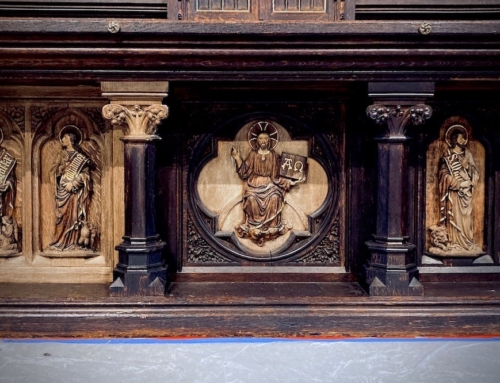Ordering from a lengthy restaurant menu is a frightful experience. Your eyes scan desperately over countless options while your mind tries to keep up. The expectation that you somehow keep up a conversation with fellow diners at the table exacerbates the agony. The waiter comes far too early and, blithely ignoring your panic-stricken countenance, asks for your order, which you utter in duress. As he walks away, you are already second-guessing your selection, and by the time the food has arrived you realize your grave mistake—you should have ordered what your friend got.
A multiplicity of options is not limited to resturants—whether it be at an ice cream shop or on a website, modern consumers are offered many choices. The sheer number of choices can be overwhelming and even stressful, and some suggest that it also might be bad for business. Somewhat paradoxically, having more options makes it harder for us to make a decision. We are immobilized by fear and so either unable to make a decision or deeply unsatisfied with our choice when a decision is forced. This is all the more palpable when faced with major decisions (selecting a college, choosing a job, deciding to get married, or applying to a religious order). We often choose to “keep our options open” by punting our choice down the road. This gives us temporary relief and a sense of freedom—but deep down we know that a decision is looming.
Our fundamental mistake is that we conflate freedom with a multiplicity of options. This view of freedom is actually paralyzing—we are enchained by our inability to make a decision.
Thankfully, this is not how a Christian is expected to live! The Psalmist offers a radical alternative: “Lord, I am your servant… you have loosed my bonds” (Ps 116:16).
What a paradoxical statement! The Psalmist asserts that we are freed from our bonds when we become servants of the Lord. Freedom is equated with servitude! He supports this radical view in his great song in praise of the law, Psalm 119. God’s law is a manifestation of His Divine Plan for the cosmos: his “word stands forever, it is as firm as the heavens” (v. 89). Humans are part of this grand design, and each can call to God: “Your hands made me and fashioned me; give me understanding to learn your commandments” (v. 73). After learning these commandments, each person can then promise to God: “I will never forget your precepts” because “through them you give me life” (v. 93); this knowledge “is my comfort in affliction” (v. 50), since “your word is a lamp for my feet, a light for my path” (v. 105).
Far from a set of seemingly arbitrary “dos and don’ts,” God’s law is a plan for our happiness and flourishing. Obeying God’s law allows us to live in conformity with his design for the world. As obeying the laws of physics enables one to live better (thankfully gravity keeps us from floating into space), even more so does one live better and happier by obeying God’s eternal law.
Grounded in knowledge of God’s law and with a firm trust in his providence, we can boldly make decisions without fear of “missing out” or “losing our options.” Even though our options may be limited, this does not make us less free. By limiting our options to what is conformable to his law, we can confidently make decisions. Far from being left to writhe in an agonizing, interminable decision-process, we are assured of God’s aid in our decision and can trust in his loving providence. It is only then that we are truly free.
✠
Photo by Victoriano Izquierdo on Unsplash







